In this issue, Positive Parenting had the privilege of interviewing Datuk Professor Dr Che Muhaya Binti Haji Mohamad. She hails from Kampung Ladang, Terengganu, where she was born in 1958.
As it was fairly common at the time, Prof Muhaya’s father had a very authoritarian style of parenting and was a very strict man who valued discipline. All the children were expected to be up, bathed and ready for prayers by 6:30am. After prayers, it was time to hit the books and study.
However, she also remembers her father as a very loving and visionary parent who was always talking about the future. He would often motivate his children by telling them that they could become architects, doctors, or engineers. He was also supportive and encouraged her to study. Another core value that he instilled in her was a sense of generosity and compassion for the poor.
Parents in the ‘60s and ‘70s were often fierce and would raise their voice and shout at any mistakes their children made. Her own parenting style was deeply influenced by her upbringing and she stressed a lot on discipline. However, she never relied on force to get her children to study. For instance, if any of her children did not want to study for SPM, she would say something like, “Just imagine – if you watch TV all the time and don’t study, then on the day you get your result, would you be smiling happily or crying?”
She admits that her parenting style was a more toned-down version of her own parents’ style. “Looking back, I know I was still a bit fierce. However, I did become mellower with age. By the time I became a grandmother, I must say I’m totally different compared to when I was a mother,” she states.
Prof Muhaya, who is also a Director of Prof Muhaya Eye & LASIK Centre (PMELC), went on to add that as a parent, the feeling of responsibility is very high to strive for a favourable outcome for her children. “We want to ensure that our kids get a good education, good career, and a bright future. Back in the 80’s and 90’s, my priority was on academic achievement as it meant a good career and a safe future. However, as a grandmother, my perspective to life has shifted,” she explains.
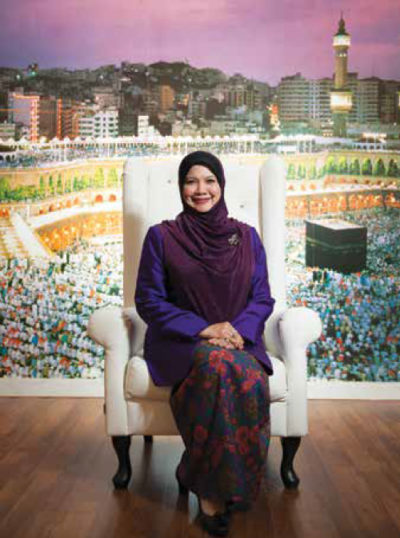
The focus of parenting was on achieving academic excellence as it was critical for the success and survival of an individual as getting into university would help ensure a stable job. This is the cause of a lot of stress and competition in children.
She revealed that when she meets people of her age, many of them show the scars of this method of parenting. For example, her peers who had fierce and unappreciative parents who frequently yelled at them tended to be people with low self-esteem who kept trying to be perfect. They would also be easily depressed and unhappy if they failed to achieve their goals.
While she feels that children can grow up to be and to do anything they want, she also believes that it matters very much who they become. She always visualises her grandchildren to grow up as people who are beneficial to community, people with good character who have excellent attitudes and moral values.
The 60-year-old grandmother also admitted that as a grandparent, she tends to be much more loving, less strict, and also spoils her grandchildren. Initially, she used to buy them all kinds of clothes and toys but now, she is slowly trying to teach them the importance of being neat and tidy while minimising on buying them lavish things.
She is very much in favour of teaching affirmation to her grandchildren in order to increase their self-image. A positive self-image will lead to positive behaviour.
“That’s the pitfall that grandparents fall into, and I’m sorry to say that I was not immune to it myself. My children had to confront me about it and as I did not want to impose my values on them, I let them have their way. Instead, I observe and admire the way my children are raising my grandchildren, which I am grateful for actually,” she confides.
She also admitted that she wanted her children to feel good about themselves, and would often show her appreciation for their good behaviour by telling them how proud they made her feel. She kept criticisms to a minimum.
Prof Muhaya recounts, “My father was in the army, so punctuality was a priority. I was allowed to go out to play provided I was home by 6pm sharp, then take a shower and be ready for prayers. My father was also very handson, as he would quiz us on what we had read or studied.”
The parenting evolution
In her opinion, the biggest difference in parenting styles is the level of strictness and lack of emphasis on parent-child communication. Children were not allowed or expected to say anything; their role was to listen and obey their parents and the older generation. While this may have made things easier for their parents as the children were more obedient and were less likely to be involved with anything bad, there were repercussions later in life.
Prof Muhaya, who is also a motivational & self-development speaker, feels glad that modern parenting has led to better educated parents, who are able to raise more creative and innovative children. “I am optimistic that as time goes by, each generation will improve. Religion is also very important as it provides us with a basis of an afterlife, to strive for where we would be accountable for our deeds in this life. Whatever we do, we want our children to be happy and to raise children who are more giving than receiving,” she confides.
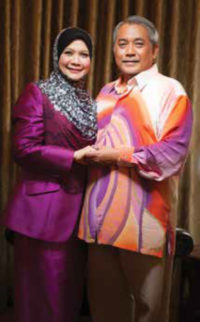
Parents nowadays are more open-minded, loving, kinder, and better educated. There is a higher awareness that every child has his own potential, and parents now focus on the other aspects of a child’s development other than the purely academic one. However, she also feels that discipline still needs to be maintained – it is lacking now as parents tend to give in to their children.
Parents nowadays tend to be more permissive or giving as they strive to strike a balance between not spoiling their child versus not being too hard on them, in order to build up the child’s self-confidence and independence. “Your children are just like a mirror-image of you. Parents should provide children with unconditional love and show them that they are accepted as they are. This will help them develop a positive self-image and learn to love and accept themselves. Discipline when necessary, but be sure that your focus is on their behaviour and that you still love them,” she advises.
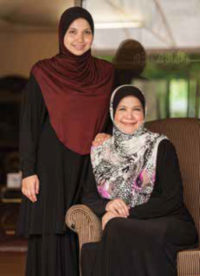
There is no ‘secret’
Successfully juggling a busy career with the duties of motherhood is all about discipline and focus. “I became a mother during my final year of medical school. Even though I had just delivered 16 days ago, I was already on my ward rounds to see my patients because I was focused on passing my exams. I continued to study while breastfeeding my daughter. I had to multi-task in order to accomplish the many things I had to focus on to pass my exams. By God’s grace, I was selected as the best student for my O&G posting despite only having half of the attendance. So I suppose you could say that my ‘secret’ is simply discipline, focus and God’s grace,” discloses Prof Muhaya.
As a doctor, she often works late and this contributed to her feelings of guilt for not having much time for her children. However, her children see that she is busy as a doctor for a good cause – to help people. She feels that this may be why two of her daughters became doctors.
“If you have reason to be unhappy with your children, it means that you have not been a good enough role model or you did not use an appropriate parenting style, for his or her age and developmental stage. As parents, we have to be flexible as there is more than one way of doing things. Be flexible, watch for any feedback, and adjust accordingly,” she advises.
Nothing worse than…
According to Prof Muhaya, the greatest sin that any parent can do is to give digital gadgets to children. Children who become hooked on digital gadgets can become anti-social and find more joy in digital gadgets instead of interacting with family and friends. “Firstly, many studies have shown that over-stimulation of a child can cause a decrease in their cognitive ability. Secondly, it can cause myopia in children, causing them to wear glasses early. Thirdly, this can cause them to become anti-social. Lastly, it is an easy way out for parents. I am very much against this as there will be a price to pay later,” she cautions.
“Parenting is a big job, so parents should be ready to shoulder the big responsibility that comes with it. In my opinion, if you are happy to get married and to have children, you must also be happy to be a parent. At least 90% of parenting should be done by parents, because that’s who will be around for the rest of the child’s life. Grandparents or the kakak/bibik should not account for more than 10% of the ‘parental workload’ – the rationale is simple, grandparents will eventually pass on and kakak/bibik may not work with the family forever. Thus, it is up to the parents to bond closely with their children,” she states.
“To me, parents must see children as a way of investment for their afterlife. The greatest asset for anyone are their children and the longest eternal happiness is having good children… children are the future as they will be around for many years and generations,” she says.
This can be achieved by focusing on three main things: intrinsic motivation so that they will be achievers, have a good character, and build good relationships. Superficial things such as wanting to be rich, famous, or pretty should not be encouraged. Leave those behind and be authentic. Accept your children as they are, warts and all! Please remember the bane of any child’s existence – “I am not good enough” and “I am not loved enough”. They represent the root of all problems in the world.
Food for thought
“I am not good enough” – Prof Muhaya warns that criticising our children and comparing them against others is a bad move. This could turn them into perfectionists, and increase the possibility of suffering from stress, anxiety and depression.
“I am not loved enough” – not showing your children enough love would cause them to seek love elsewhere. Furthermore, a person who does not feel loved sufficiently would likely not love himself and face difficulties in loving others, thus leading to problem relationships.

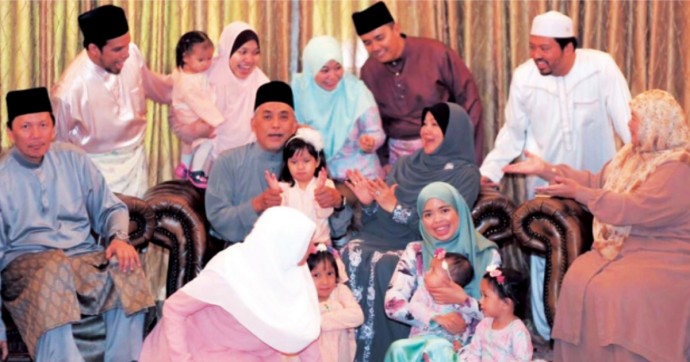



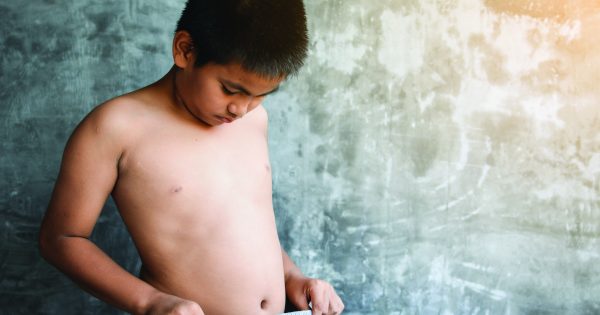


Comments